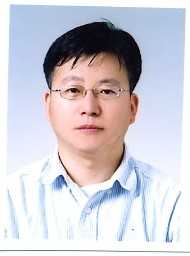Biography
Kim, Hyeon Soo, (born July 13, 1967, Korea) is Korean scientist who studied AMPK signal transduction. He received M.D. from Korea University College of Medicine in 1998 and a Ph.D. in Cell Signal Transduction from POSTECH (Pohang University Science and Technology) in 2006. In 2007, he became an assistant professor in Department of Anatomy, Korea University College of Medicine. During this period, his research became increasingly focused on AMPK. AMPK is an enzyme that plays an important role in cellular energy homeostasis. AMPK, a heterotrimeric complex consisting of a catalytic subunit and two regulatory subunits, is activated upon depletion of cellular energy stores by allosteric binding of AMP or through phosphorylation at Thr172 of the catalytic subunit by AMPK kinase. Activation leads to an acceleration of ATP-generating catabolic pathways, including glycolysis and fatty acid oxidation, and a simultaneous reduction in ATP-consuming anabolic pathways, such as the synthesis of cholesterol, fatty acids, and triacylglycerol. Activation of AMPK can potently suppress cellular growth via inhibiting the mTOR pathway which is hyperactive in many types of cancer. On the other hand, downregulation of AMPK activity is associated with the type II diabetes, diet-induced obesity, insulin resistance and the development of other metabolic disorders. Therefore, now, AMPK becomes a promising research target for diabetes and cancer and regarded as an excellent therapeutic target. However, many things still remain unanswered due to its mutifacet. His research interest is to understand molecular mechanisms of AMPK, especially disease-specificity of AMPK in diabetes and cancer. His hypothesis is that tissue-specific interacting protein may decode AMPK’s disease specific roles. To prove this hypothesis, he tried to identify tissue-specific AMPK-interacting proteins both in muscle and tumor tissues, and now characterizing its hypoglycemic or antitumor functions in each tissue.
Research Interest
cellular energy homeostasis;cellular energy stores by allosteric binding of AMP or through phosphorylation at Thr172 of the catalyticsubunit by AMPK kinase. Activation leads to an acceleration of ATP-generating catabolic pathways,including glycolysis and fatty acid oxidation, and a simultaneous reduction in ATP-consuming anabolic pathways, such as the synthesis of cholesterol, fatty acids, and triacylglycerol.
